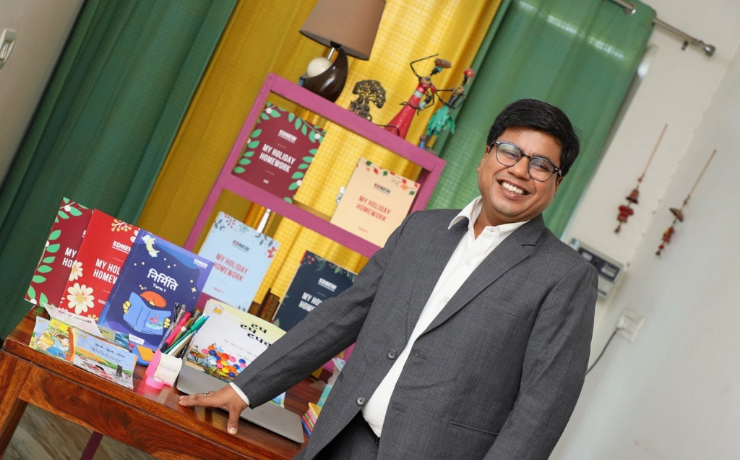Mehak Walia in conversation with Aahwahan Foundation, an NGO that is involved in promoting the welfare of people and driving the beauty of change with the power of their work.
In the vast tapestry of India, where myriad challenges intertwine with the hopes and dreams of millions, the Aahwahan Foundation stands as a beacon of transformative change. This Pan-India organization has orchestrated a symphony of initiatives that address critical issues in education, healthcare, women empowerment, community development, and environmental sustainability.
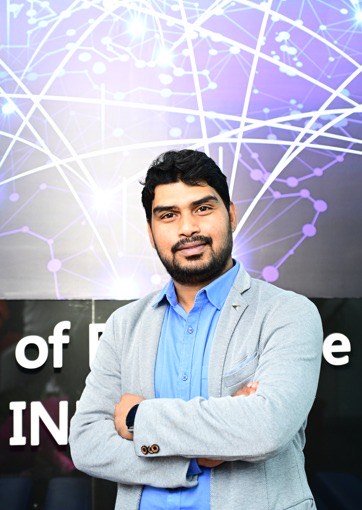
Braja Kishore Pradhan, the founder of this incredibly generous organization, exclaimed, “Aahwahan started as a mission to make the world a better place for us all. We work on five segments: Environment & sustainability, community living, women empowerment, education and health. In farming, which is the backbone of our country, Aahwahan has empowered more than 2 lakh farmers with its initiatives and helped them receive good returns. Our ideology is guided by ‘Vasudhaiva Kutumbakam,’ which means the whole world is a family, and we need to work towards each other’s upliftment to bring about change. Only collective effort can bring about change, which we are committed to.”
Their Education Initiatives:
At the heart of Aahwahan Foundation’s mission is the commitment to reshaping the educational landscape, ensuring no child is left behind. The ‘Education on Wheels’ program exemplifies this dedication. In Karnataka, the foundation’s mobile academic unit traverses diverse locations, bringing quality education to the doorsteps of underprivileged students. This innovative initiative is not merely a van; it’s a moving classroom with a biology, chemistry, physics, maths, computer, robotics, and digital library. Students not only gain theoretical knowledge but also experience practical hands-on learning. The van provides access to expert teachers through an interactive panel, facilitating personalized guidance. This initiative extends beyond conventional classroom learning, encompassing vocational training, guidance, and personality development. The goal is ambitious yet impactful — to prepare students for exams like JEE, NEET, and UPSC, ultimately reducing dropout rates. In its initial phase, the van traverses various locations in Karnataka, from rural and semi-rural to urban and slum areas. The future plans include extending its reach across different states in the country.
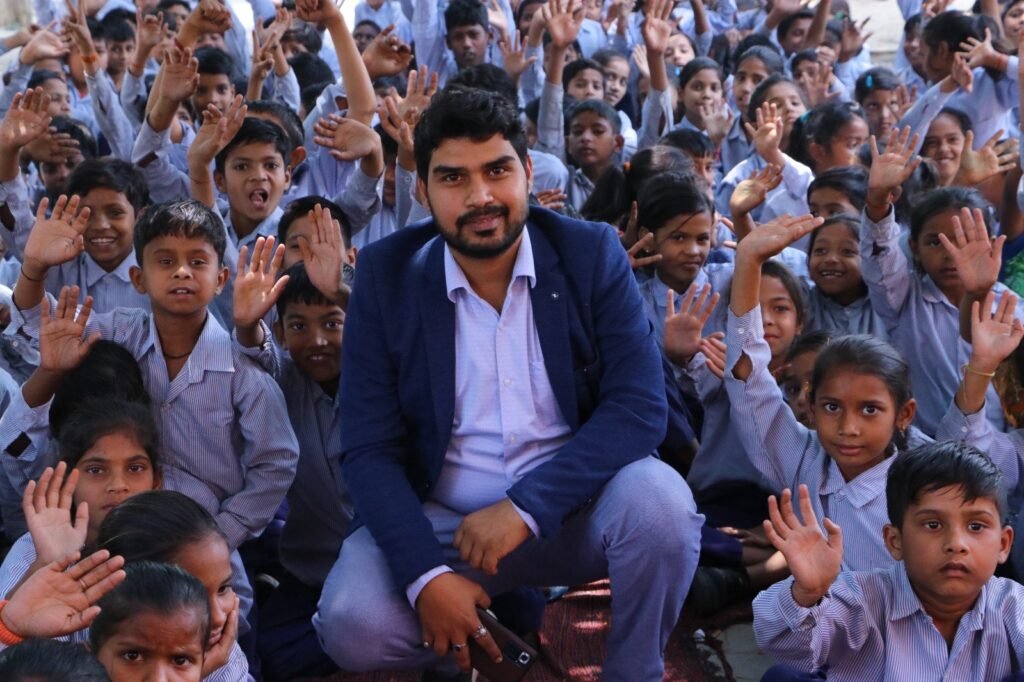
As dropout rates remain a concern, the Aahwahan Foundation aims to reach at least 10,000 children in the current year. Notably, the foundation emphasizes reaching out to female students, recognizing education’s pivotal role in empowering them. The foundation’s commitment to education goes beyond the wheels. The ‘Laptop Bank’ initiative ensures that the education of economically disadvantaged students continues seamlessly by providing laptops and enabled Wi-Fi for a specified period.
Projects Unnati and Udaan:
Aahwahan Foundation’s transformative impact extends to projects such as Unnati and Udaan. Launched in September 2021, Project Unnati focuses on aiding the education of children from poor and marginalized families who have faced the loss of a sole breadwinner or parents due to the pandemic. The foundation has successfully supported over 1,000 children spanning various age groups and educational levels.
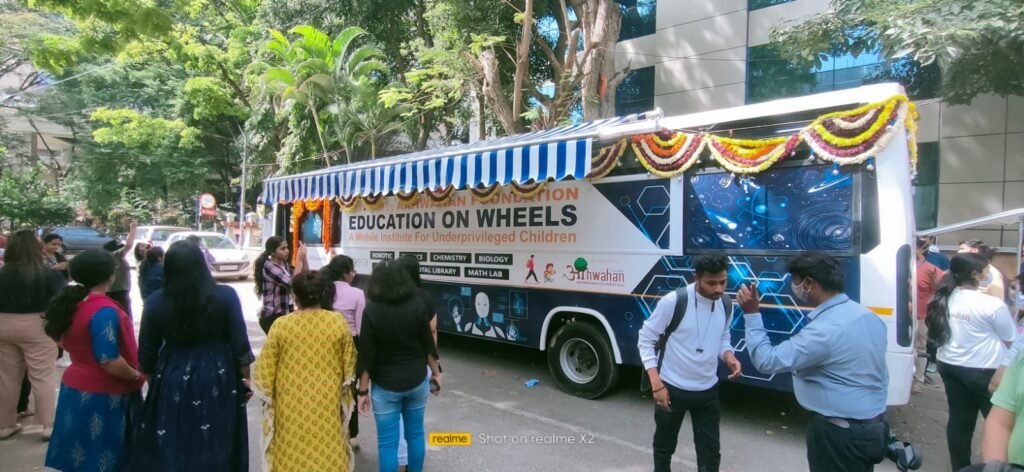
Project Udaan, a beacon for girl students in remote areas, distributes 10,000 bicycles. This addresses transportation challenges and significantly reduces the dropout rate among girls, contributing to an overall improvement in literacy rates. These projects exemplify the foundation’s commitment to inclusivity and equal access to education.
Amazing Healthcare Initiatives:
Beyond education, the Aahwahan Foundation has left an indelible mark on healthcare. Adopting villages and restructuring primary healthcare centers, the foundation ensures necessities like beds, equipment, and trained medical professionals are available. The ‘Health on Wheels’ program takes specialized medical services, including dental surgery, eye care, heart health, and general physician services, to the doorstep of communities.
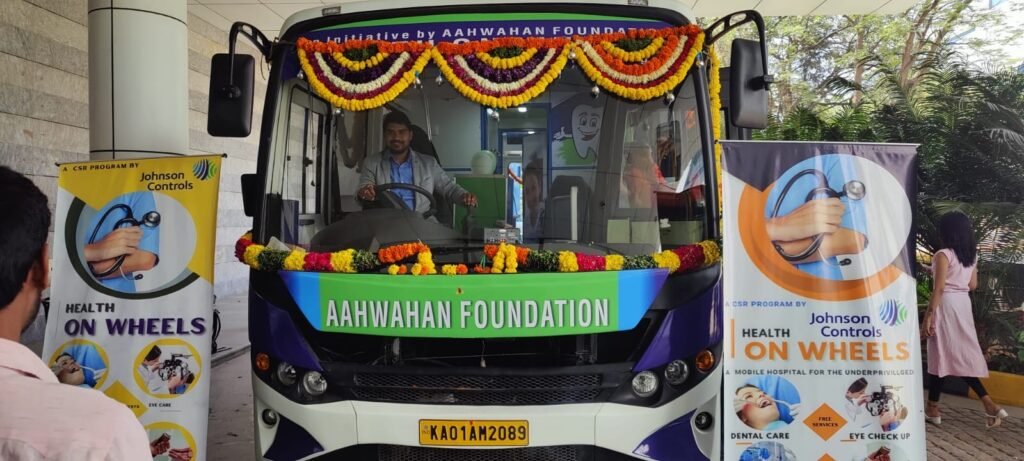
With 10 operational vans across districts like Bangalore, Mysore, Kolar, Belgaum, Hubli, and Tumkur, the program has benefited over 100,000 patients. Free health checks and the distribution of sanitary pads further underscore the Aahwahan Foundation’s commitment to holistic well-being.
Working Towards Women Empowerment:
The Aahwahan Foundation is creating avenues for change at the grassroots level in women’s empowerment. Local community women are actively involved in self-help groups run and managed by the village women. These groups receive skill-based training, including producing cloth sanitary pads, papads, pickles, and other locally consumed products.

Moreover, the foundation extends employment opportunities to women who have experienced domestic violence or are trapped in the sex trade. Alternate shelter and employment through cottage industries provide a path to economic independence, creating a ripple effect in communities.
Community Living and Integrative Farming:
Aahwahan Foundation’s commitment to community development is evident in its initiatives to upgrade education, healthcare, and farming practices. The foundation strives to help villages become organic by turning waste into biogas, promoting organic farming, and eliminating the use of plastics.

Notably, the foundation has successfully cleaned and restored eight water bodies in states like Orissa and Karnataka. Aahwahan Foundation doesn’t stop at rhetoric but actively engages with farmers, providing seeds, fertilizers, and real-time knowledge through collaboration with scientists and agricultural experts. Yutrix, a key partner, offers hardware devices that provide essential data on soil quality, seed information, nutritional content, weather conditions, and more. This wealth of information empowers farmers to make informed decisions, revolutionize agricultural practices, and encourage organic farming.
Their Environmental Commitment:
Aahwahan Foundation’s environmental commitment extends beyond immediate community impact. Planting trees and fostering awareness about climate change among villagers and children exemplify the foundation’s dedication to sustainable practices. By intertwining environmental consciousness with community development, the Aahwahan Foundation shapes a future where prosperity coexists with ecological balance. They have also cleaned a lot of beaches and water bodies in several parts of the country to drive change and make the world a better, safer, and cleaner place.
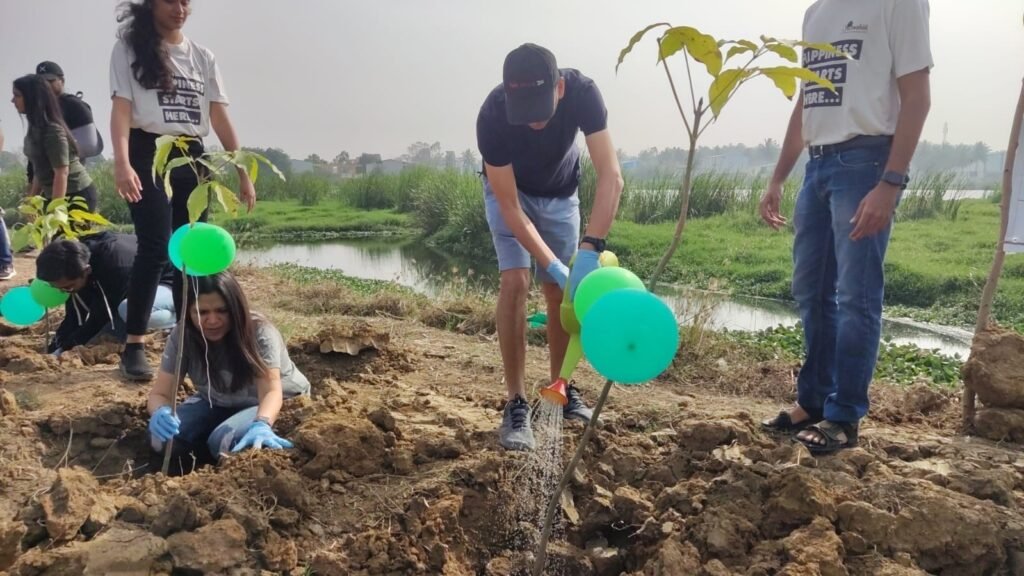
This list is inconclusive; the foundation keeps coming up with new ways to make the world a better place for everyone. In a landscape marked by diversity and complexity, the Aahwahan Foundation emerges as a guiding force, weaving together diverse initiatives to create a tapestry of positive change. From empowering the future through education to ensuring the well-being of communities and fostering environmental sustainability, the foundation’s endeavors embody a holistic vision for a brighter and more equitable India. As they continue to drive transformative change, the Aahwahan Foundation is a testament to the power of dedicated action and compassionate outreach, inspiring others to join in the journey towards a better tomorrow.
























